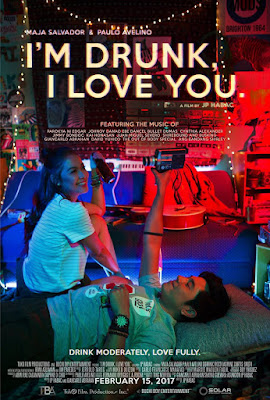J EDGAR (Clint Eastwood)
If there's a message Clint Eastwood's J. EDGAR successfully conveys, it is this: even monsters have goodness in their hearts, no matter how wrong their methods of achieving ends may be. Eastwood masterfully directs a fairly-presented biopic based on a screenplay by Dustin Lance Black (MILK), while Leonardo DiCaprio gives his all and achieves a lot covering his character's beliefs and inner conflicts, though he has given better performances in previous films (SHUTTER ISLAND is one example).
The focus primarily of J. EDGAR is the controversial FBI head's contributions to modern law enforcement, and the price he paid for it, both cementing his status as a relevant icon of history. We see J. Edgar Hoover's unwavering allegiance to the American flag, and the many times his ideas seemed farfetched, to the point of utter rejection, yet the script is intent on proving that Hoover was right most of these times, with all his seemingly absurd notions about surveillance, forensics, and the works.
At the same time, the film also includes the darker side of J. Edgar Hoover in order to show contrast, but most importantly, transparency- his repressed homosexuality, his Oedipal relationship with his mother, his hunger for public approval, even his obsessive-compulsive disorder- all of those are here. We remember the man as a monster, a control freak, and a villainous G-MAN that no president can touch, but Clint Eastwood's careful and balanced treatment of his subject matter portrays J. Edgar Hoover as an actual human being with a benefit of the doubt.
A few supporting characters saw Edgar as more than an authoritative monster: his trustworthy secretary Helen Gandy (Naomi Watts) treated him with respect and admiration, but most importantly, loyalty; his mother (Judi Dench) adored and believed in his son, and supported him all the way (hence that breakdown scene following her death where DiCaprio does a Norman Bates and cross dresses, minus the knife), and most importantly; Clyde Tolson (Arnie Hammer), his number two man, who was in love with him, and whom he also loves, but in a strained, complicated way. Eastwood presents of Hoover and Tolson's homosexuality, but the film does not dwell too long on the subject, which is a smart move because it avoids prejudice.
By presenting these three closest characters to Hoover, Eastwood wants us to see Hoover the way they did: without predispositions, and with complete or at least adequate knowledge of his beliefs, qualms, and challenges.
There is a lot of effort done on making DiCaprio resemble J. Edgar Hoover, what with the hair and makeup and the accent, in which Philip Seymour Hoffman comes to mind, who could have easily donned the shoes so well. DiCaprio does his best and makes for a decent enough J. EDGAR, but I still could not shake the idea of how it would look like with Seymour Hoffman in the role, especially when they look exactly alike once DiCaprio plays Hoover in his later age.
RATING: 4/5

Comments
Post a Comment